SIAM calls for long-term policy roadmap to enable smooth transition to future mobility
Apex industry body moots 10-year policy roadmap to ensure more sustainability and growth for the Indian automobile sector.
The Society of Indian Automobile Manufacturers (SIAM), which represents India’s automobile sector, held its 58thAnnual Convention today on the theme of ‘Building the Nation, Responsibly’. There was consensus among the many speakers about the need for a long-term regulatory and policy roadmap for India’s auto sector and moderating of GST taxation, as the country heads towards global transition to electric vehicles and future mobility.
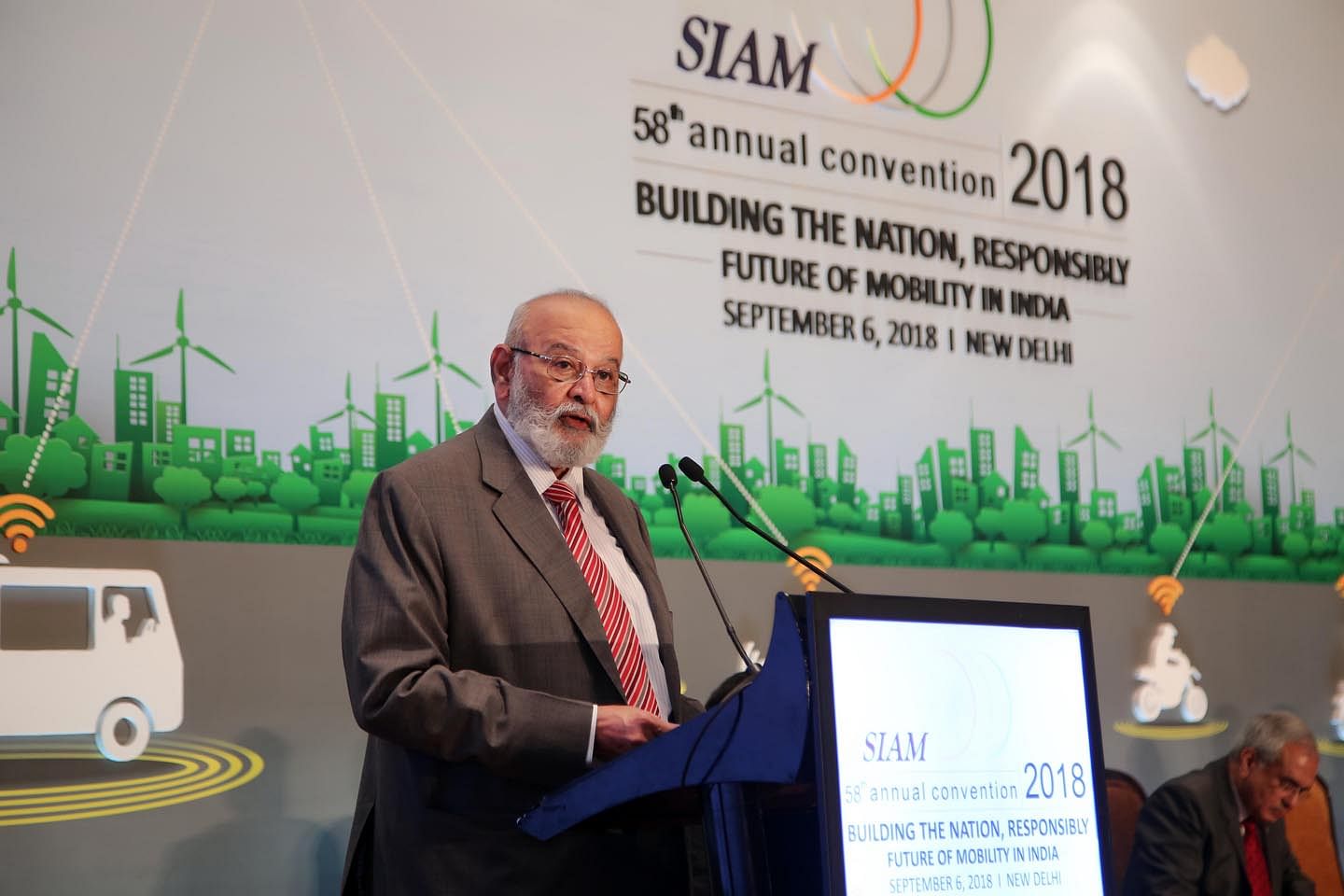
Dr Abhay Firodia, president, SIAM and chairman of Force Motors, urged the government to address the need for a long-term regulatory policy roadmap for the auto sector and also moderate GST taxation. He, however, stated that the implementation of GST has made taxation regime far more streamlined.
Dr Firodia said that policies being changed in an ad hoc manner creates uncertainty in the industry. He therefore called for a 10-year policy roadmap which will give more sustainability and growth to the sector as vehicles are no more a luxury good and are important for driving the wheels of the economy.
He asked the government to help bring down multiplicity of organisations with which the sector has to deal with. He said an incompatible and contradictory regulatory environment could drive away investments from the country. Vehicles are an integrated complex machinery and are manufactured with technical regulations which are globally compatible and follow international norms, he added.
Dr Firodia said that the upgrade from BS IV to BS VI emissions has been very fast. Given that the industry today is far more complex, there is a need to build an ecosystem and the transition needs to be gradual than having a sudden disruption. He also stated that IC engines cannot be phased out and will continue for a decade.
Ram Venkataramani, president, Automotive Component Manufacturers Association (ACMA) and managing director, IP Rings, said the quality of exports has changed significantly and provides a job opportunity to over 3.2 million people in India. “There is a significant room for growth. More than 60 percent of India’s exports go to matured markets in Europe. We are committed to the 2020 BS VI deadline and we move ahead to transition to autonomous, connected vehicles.”
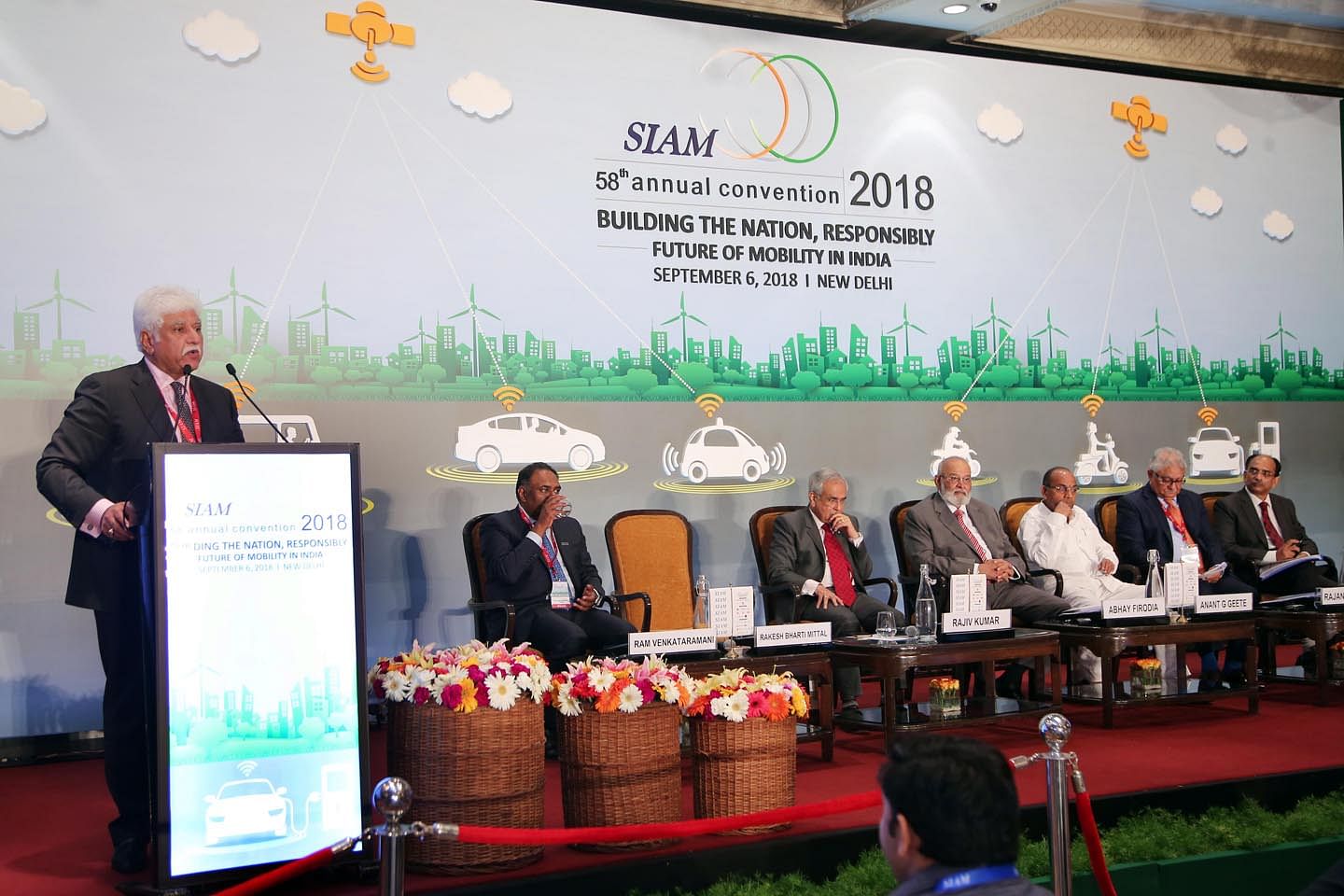
Rakesh Bharti Mittal, president, CII and vice-chairman, Bharti Enterprises, said India’s competitive weakness is in design and product components in the auto sector. The sector is working on advancement of manufacturing sector technology, upskilling and reskilling workers and employment. “More has to be done for sustainability, safety, new value propositions, increased software components in car, in-depth alignment, working closely with supply chain, new technology and be future ready,” he argued.
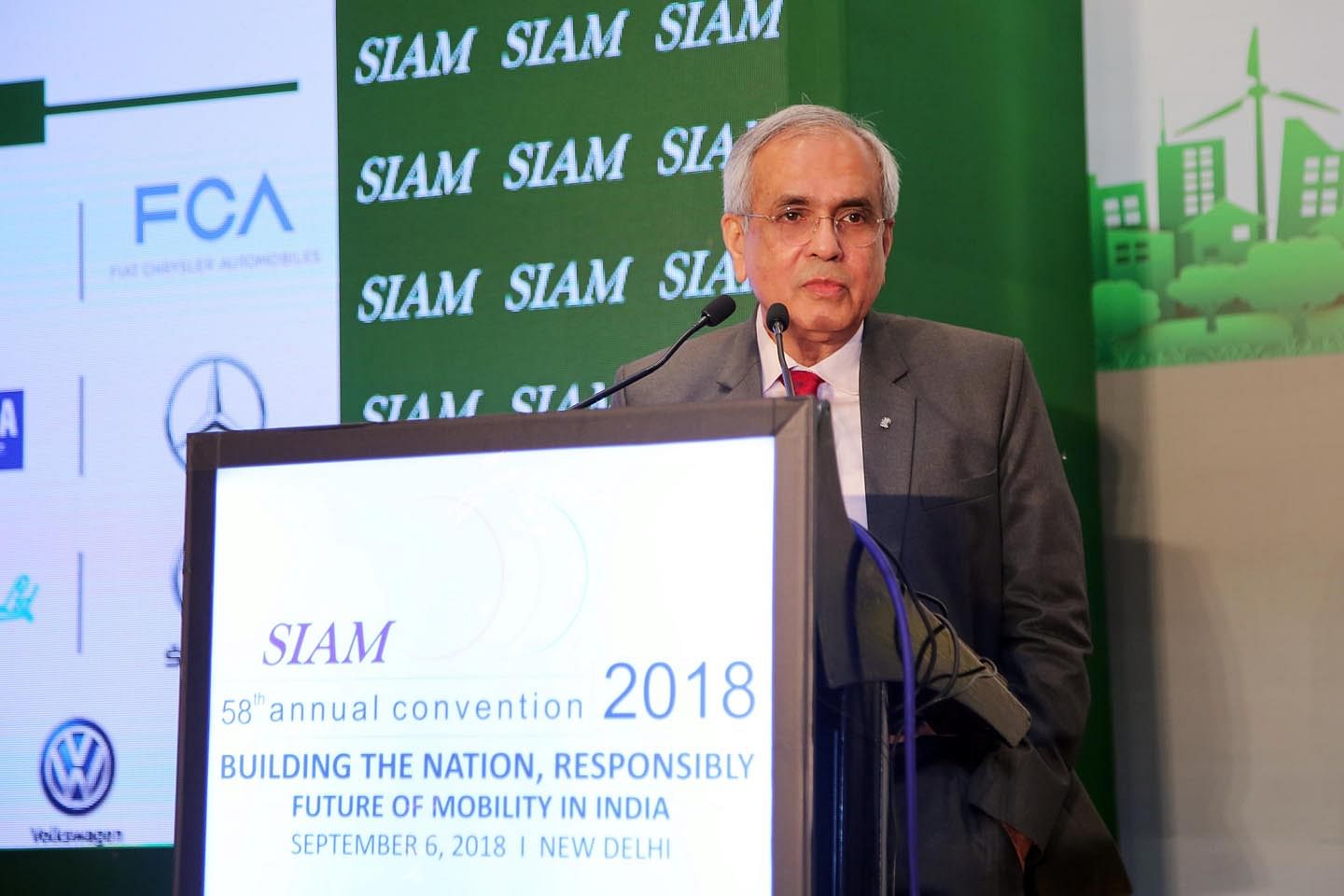
Dr Rajiv Kumar, vice-chairman, NITI Aayog, said the auto sector is facing huge disruption as it moves from IC engines to electric vehicles. He called upon the auto sector to invest more in innovation and R&D. “Let our R&D expenditure go beyond one percent. Modern mobility, which is connected, shared and data driven will reduce the carbon footprint. We have to plan this transition. And this has to be carefully managed. NITI Aayog is open to new ideas and suggestions,” Dr Kumar asserted.
Speaking at SIAM’s Annual Convention, Union Minister of Heavy Industries and Public Enterprises, Anant G Geete said the government would soon come out with the new auto policy. He explained that any policy shouldn’t be made in a hurry and that all aspects of the industry would be discussed with the industry and considered before finalising the new auto policy.
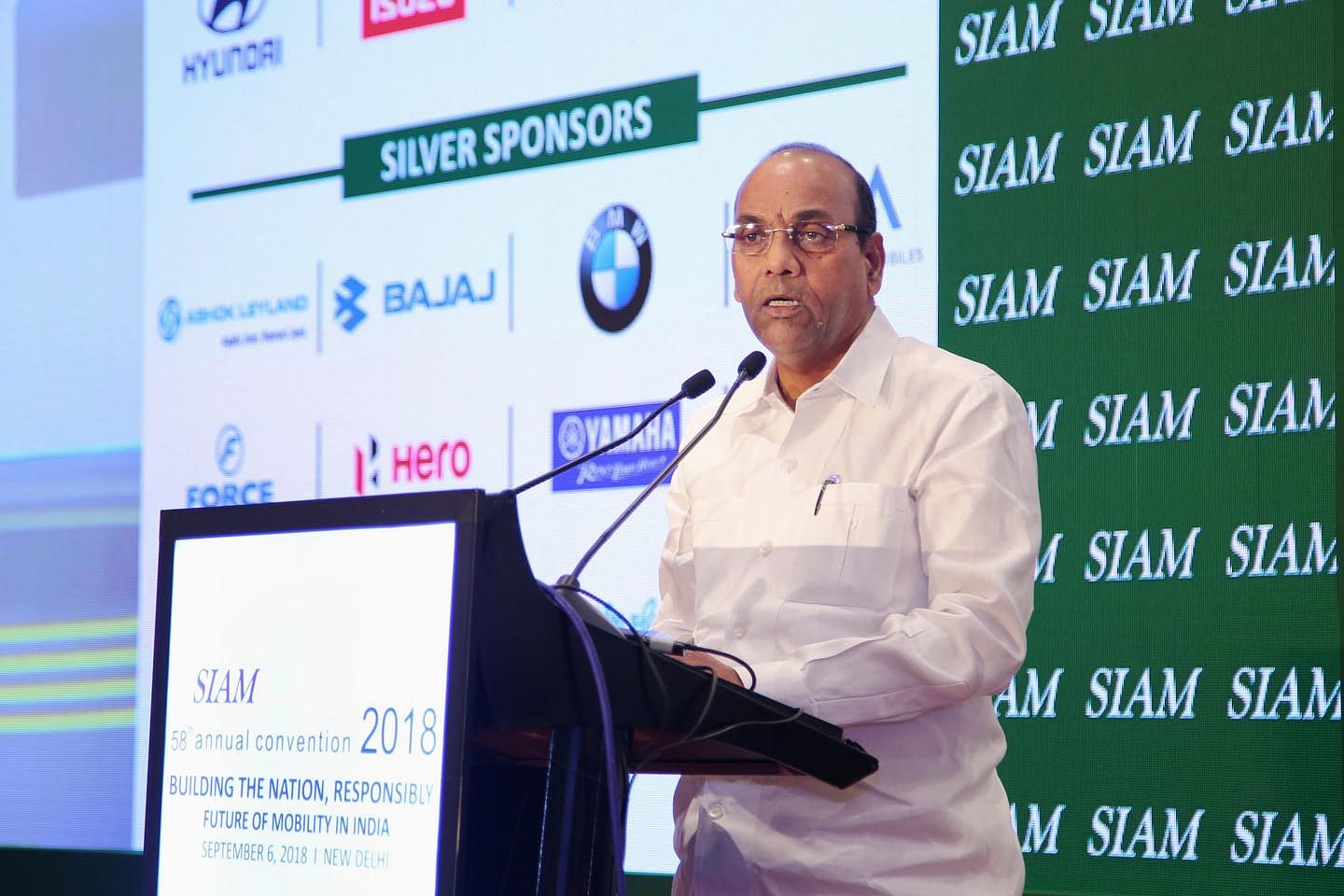
“We understand your concerns on GST. There should be no fear in the mind of the industry. While we are going through a process of change, we also have to understand the need of the consumer. The new policy will be industry, consumer and environment-friendly. It is important for us to move on and change according to time. If we don’t, we will slip back. We are here to work and ensure growth of the industry,” explained Geete. He commended the industry and urged it to proactively involve and help reduce dependence on single technology and focus on R&D for sustainable development of the automobile sector.
Nitin Gadkari, Minister of Road Transport, Highways & Shipping and Water Resource, River Development, & Ganga Rejuvenation, announced exemption of commercial vehicles, buses, taxis and all vehicles running on alternative fuel from permit requirements. This, he said, will open more businesses for industry. He also said the government is thinking of allowing two-wheelers to be used as a taxi in non-metro cities, a move that will provide large employment opportunities.
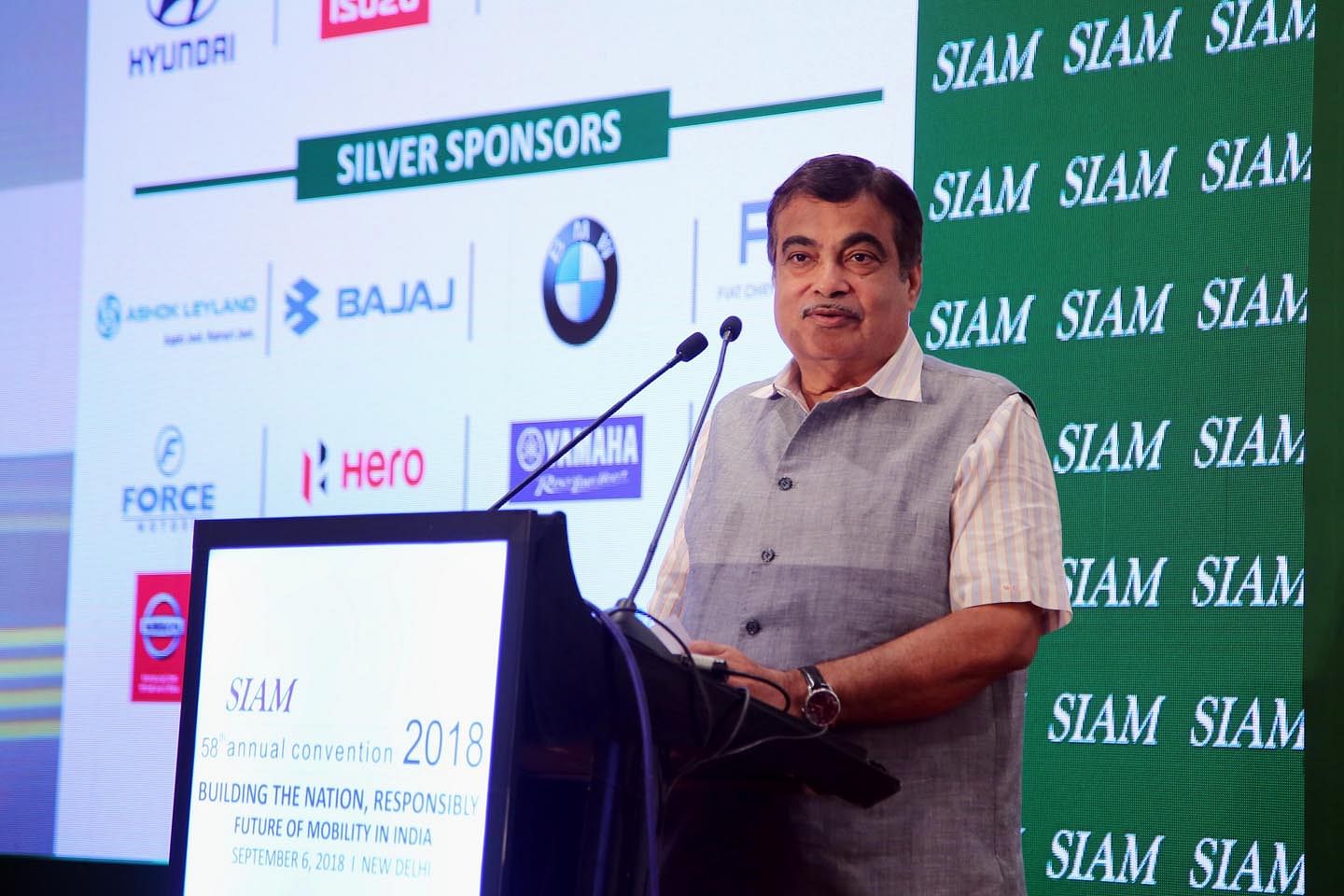
He also called upon the industry to look at diversification and new economically viable businesses. “You can explore water transport, which will not only be economical but also provide open growth for the auto sector. We are adding more roads, highways and industry is benefitting from it. The government is ensuring seamless, faster traffic which will connect people and goods faster. More access to fast track and electronic toll plaza is being given. We are also cancelling speed governors. We don’t need it as we are developing good roads. There is no need to limit the speed artificially,” said Gadkari.
He said the industry must ensure better models, engines and produce high performance vehicles. “Our government has given priority for development of bio-fuel. Our price-centric mentality needs to be cost and comfort centric,” he added.
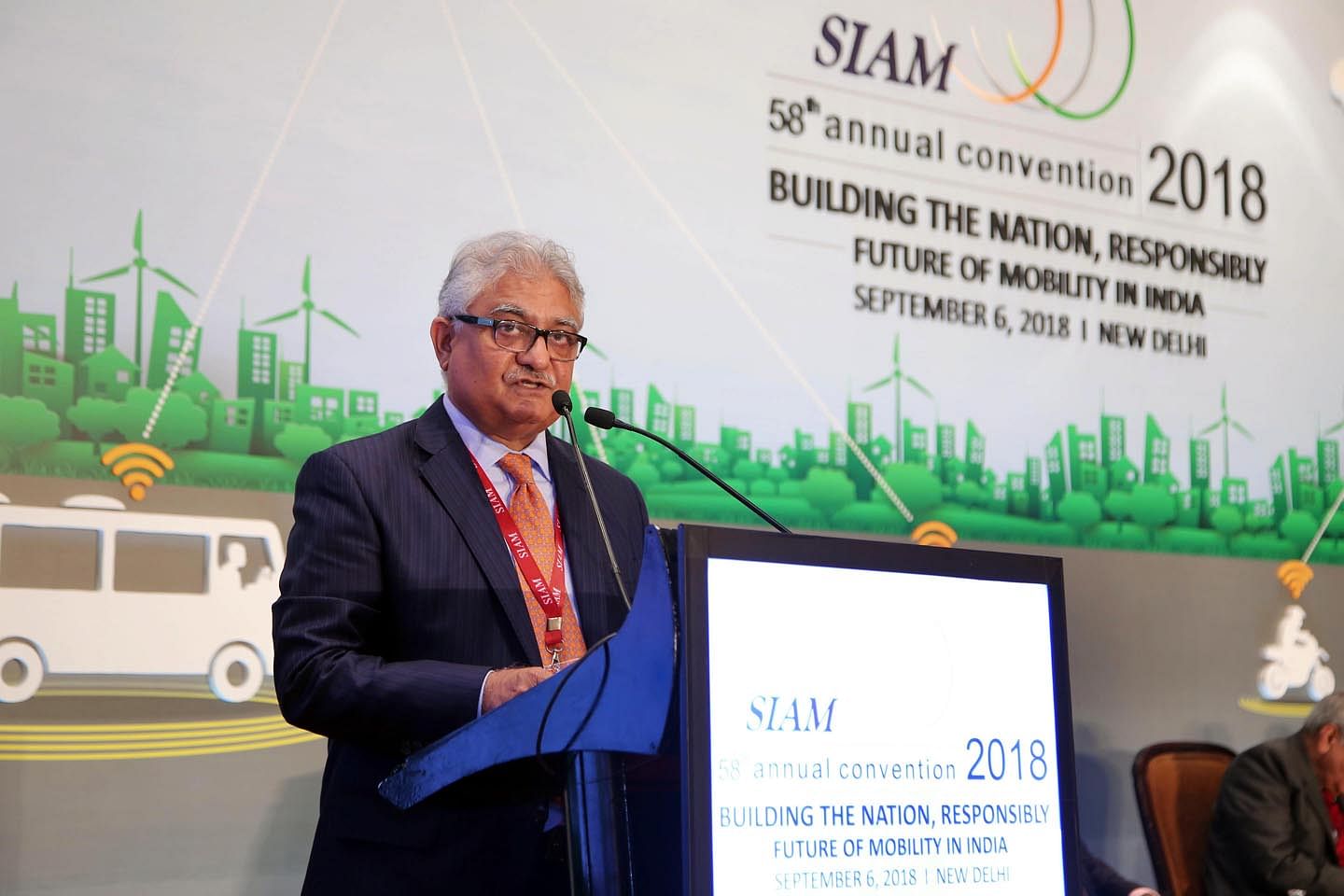
Rajan Wadhera, vice-president, SIAM and president – Automotive Sector, Mahindra & Mahindra stated that India’s auto sector has grown in size and stature and plans to create 65 million additional jobs. However, despite facing several challenges, it is working hard with different stakeholders and the government to ensure sustainability and growth.
Also read: MOVE Summit India opens, PM Modi calls mobility sector a key economy driver
Industry captains urge suppliers to think global, invest in R&D, be agile in a disruptive era
RELATED ARTICLES
Bajaj Auto launches new Chetak 3503 at Rs 110,000
The Chetak 3503, with a claimed range of 155km, 63kph top speed and a slower charging time than its 35 Series siblings, ...
Hyundai walks the eco talk with biogas plant, material recovery plant in Gurugram
Operational since October 2022, the facility targets sustainable waste management in Gurugram by undertaking scientific ...
Rajiv Bajaj reappointed MD and CEO of Bajaj Auto for five-year term
Bajaj Auto’s Board of Directors has approved the re-appointment of Rajiv Bajaj as the company’s MD and CEO for another f...






 By Autocar Professional Bureau
By Autocar Professional Bureau
 06 Sep 2018
06 Sep 2018
 6449 Views
6449 Views


















